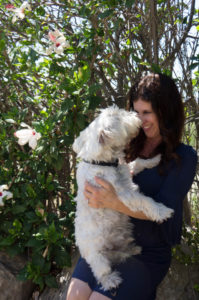 When you publish on Amazon, you choose keywords — seven to be exact — to help consumers find your book. Did you know that the manner in which you combine those keywords has a dramatic effect on your book’s discoverability? I recently wrote about how keywords can make your book sales soar. Here are more best practices with keywords to try out immediately.
When you publish on Amazon, you choose keywords — seven to be exact — to help consumers find your book. Did you know that the manner in which you combine those keywords has a dramatic effect on your book’s discoverability? I recently wrote about how keywords can make your book sales soar. Here are more best practices with keywords to try out immediately.
Be Logical —
Let’s assume you’ve written a science fiction novel about military intelligence. What will consumers interested in this subject be most likely to type into their Amazon or Google search engine? First, consider the genre of your book. Then, the individual plot points or character traits. For instance, in this example, customers are most likely to search “science fiction military” but not “fiction science military.”
Some authors cleverly include keywords within the title of their book using a parenthetical addition. For example, the book “A Lesson in Love” by Kate Adele Rowe lists “Inspirational Christian Romance” on both the cover and as part of the title listing in Amazon. Because titles come up in search engine results, the author doesn’t need to list “inspirational” or “Christian” among the book’s keywords. This means she doesn’t need to use up precious keywords because those listed parenthetically will automatically be discovered within the title subhead.
More About Those 7 Words —
You know that you can choose seven keywords, but did you know that those seven spaces in the Amazon dashboard will also allow for seven phrases? That’s right…phrases. This means that you don’t have to use two valuable spaces for keywords such as romance and contemporary. Nope. Instead, you can combine those two words: contemporary romance. The only thing you have to be aware of is the text limit in the field.
You should take into consideration elements of your story beyond its genre when dreaming up keywords. For instance, look at this example below:
Industrial Revolution, single mother, divorcee, strong female lead, drama, feel-good, forgiveness
If you count up the words in this list, there are certainly more than seven, but these clever phrasings are accepted by Amazon in accordance with their “only seven words” mandate. This example takes into consideration setting (Industrial Revolution), character types (single mother, divorcee), character roles (strong female lead), plot themes (drama), and story tone (feel-good).
Search and Discover —
Visit Amazon and simply type “books” into the search engine. Next, look at the genres on the left-hand side of the page. You might next choose “fiction.” Then, narrow your choices by selecting a more specific genre, such as “romance.” See what comes up first in this general search. Next, narrow the search and visit the books that are most like yours. Take note of the categories they appear in and consider using those categories and keywords for your own book.
Finally, put yourself in the mindset of your customer. Let’s assume you write contemporary romance. What would you search for? Do you want a contemporary romance with a strong woman at the center of the story? Are you interested in reading a feel-good romance? Think about what your customer would search for and try to plug in applicable terms for your own book.
For my book, “Released” (a paranormal romance) (written under my pen name Mia Fox), I started to think about the storyline as well as setting to determine keywords. Here are some examples of what I chose: genies (selected for plot), steampunk (selected for the setting), new adult (selected for audience), action adventure (selected for secondary genre), and time travel (selected for secondary plot points).
Combined with advertising and social media promotions, the keywords I’ve chosen consistently results in this book receiving regular downloads.
Got any other book marketing questions? Drop me a line; I’d love to help.
 If you’ve uploaded your ebook to Amazon or other sites, you’re familiar with the keyword and category fields. How important are the seven keywords and two categories that Amazon lets you choose? Can keywords make book sales soar?
If you’ve uploaded your ebook to Amazon or other sites, you’re familiar with the keyword and category fields. How important are the seven keywords and two categories that Amazon lets you choose? Can keywords make book sales soar? 
